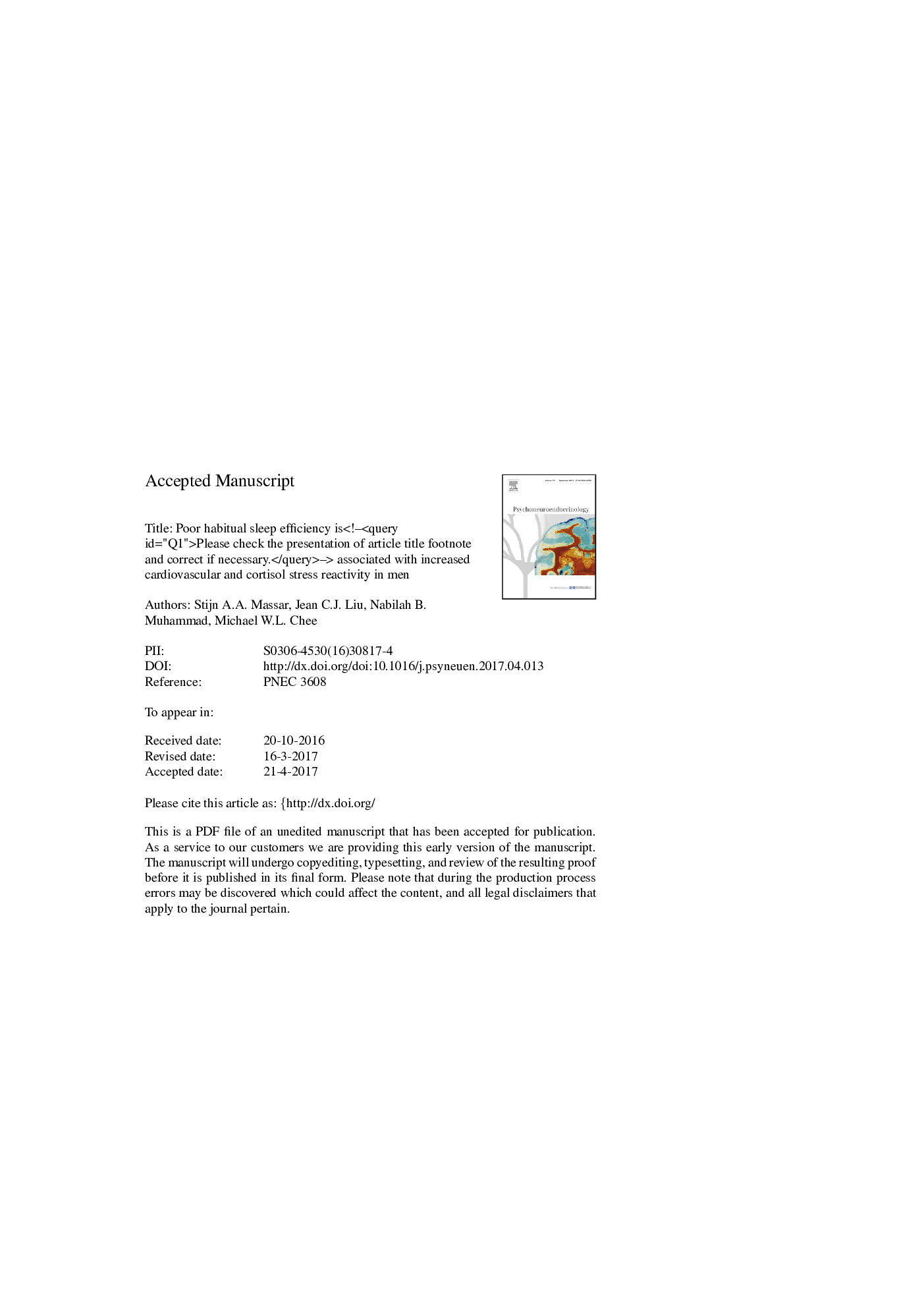| Article ID | Journal | Published Year | Pages | File Type |
|---|---|---|---|---|
| 4934408 | Psychoneuroendocrinology | 2017 | 26 Pages |
Abstract
Inadequate sleep and psychological stress can both elevate physiological stress markers, such as cortisol. Prior studies that have applied induced psychosocial stress after a night of experimental sleep deprivation have found these effects to be compounded. We examined whether the relationship between stress reactivity and poor sleep also extends to habitual sleep patterns. Fifty-nine adult male participants were recruited. Habitual sleep patterns were monitored with actigraphy for a week. Participants subsequently underwent the Trier Social Stress Test. Cardiovascular responses and salivary cortisol were measured at baseline, during stress, and during recovery. Subjects who showed poor habitual sleep efficiency during the week before stress induction responded with higher stress-related elevations of blood pressure and cortisol levels as compared to subjects with high sleep efficiency. This relationship between poor sleep efficiency and elevated blood pressure persisted during the post-stress recovery period. Similar associations between total sleep time in the week prior to the stress induction and physiological reactivity did not reach significance. Our findings indicate that habitual low sleep efficiency exaggerates cardiovascular and neuroendocrine effects of psychosocial stress, in a male population.
Related Topics
Life Sciences
Biochemistry, Genetics and Molecular Biology
Endocrinology
Authors
Stijn A.A. Massar, Jean C.J. Liu, Nabilah B. Mohammad, Michael W.L. Chee,
